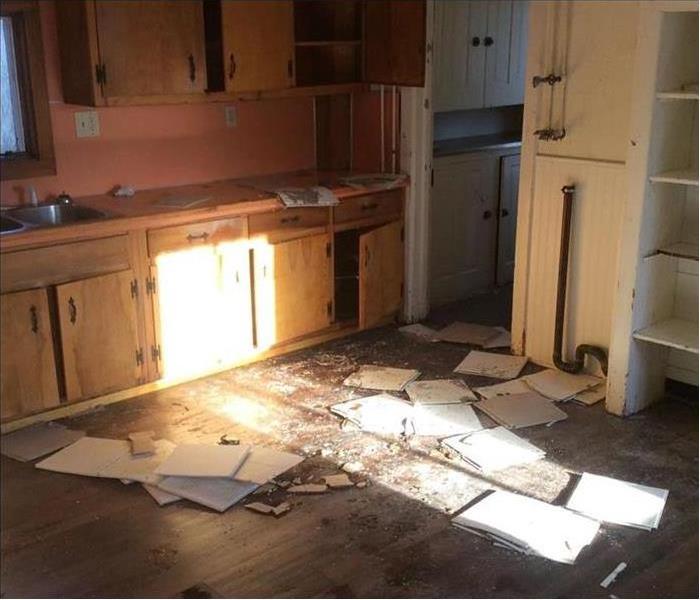What Effect Does Water Have on Building Materials?
11/21/2022 (Permalink)
How Does Water Affect Building Materials?
Water can be one of the most devastating forces for destruction in the world. When water damage is not addressed quickly and properly, it can cause permanent damage to your home and belongings. There are many different types of building materials that can fall victim to water damage if not handled correctly. This article will explain some of the effects that water has on different materials and how you can protect yourself from them in your own home!
Here are some of the effects that water can have on different building materials.
Water can cause a variety of issues in building materials, but for the most part, it's more of an issue when water sits on the surface for an extended period. Water damage is usually noticed when there's a leak in your roof or window and you notice some water damage near those areas.
Water can also affect the structure of your walls by causing them to swell when it gets wet (especially with wood). The wood expands as it absorbs moisture from the air, but when this happens continuously over time, especially if there's not enough ventilation between the studs, then cracks may start forming in the structure of your walls which could lead to structural failure later down the road if it's left untreated.
Wood
Wood is a natural material and as such it has both advantages and disadvantages. When wood absorbs water, it expands. Therefore, you may find that a wooden doorframe becomes loose or even breaks when water gets into the frame. When wood dries out after being exposed to water, it shrinks and can cause the boards in your home to split or warp.
Wood can be dried slowly with fans, but this can take several days and during that time mold might form if adequate ventilation isn’t provided. If your house has been flooded by storm waters or heavy rains, you should consider using an electric dehumidifier instead of fans because they will dry out the wood faster than fans alone would do so.
Aluminum
Aluminum is a metal that can be affected by water, but it is not as sensitive to corrosion as some other materials. This does not mean that you should ignore your aluminum collection, however. If water damage has occurred, you will need to assess the damage and repair any permanent effects quickly.
Depending on how much time has passed since the original incident and how much exposure there was to moisture and/or chemicals in the environment, aluminum may suffer from oxidation or rusting. The best way to prevent further corrosion from affecting your building material is by removing all traces of oxygen from it and sealing it with a protective coating such as wax or paint.
Concrete and Masonry
Concrete and masonry materials are porous, meaning they can absorb water. When exposed to water, these materials can absorb it and expand. This is called hydration and causes the concrete to become soft. As the concrete expands it can crack or even crumble in some cases.
Steel
Steel is one of the most common building materials used in homes. Steel is generally immune to damage if they get wet, which means it can be used to build a wide variety of structures. Steel is also resistant to corrosion, which means it will last a long time if it is properly maintained.
When you have a water damage, it's important to act quickly so that your home doesn't suffer permanent damage!
If you have a flood, contact your insurance company immediately and let them know what happened. Don't let the water sit for too long or try to fix it yourself—that'll just make things worse. Call a professional water damage restoration company like SERVPRO of Lewisburg/Selinsgrove who can help get rid of all the moisture in your home and get everything back to normal again.
In conclusion, water can be very damaging to your Sunbury, PA home. It's important to act quickly when you notice water damage so that your house doesn't suffer permanent damage!





 24/7 Emergency Service
24/7 Emergency Service
